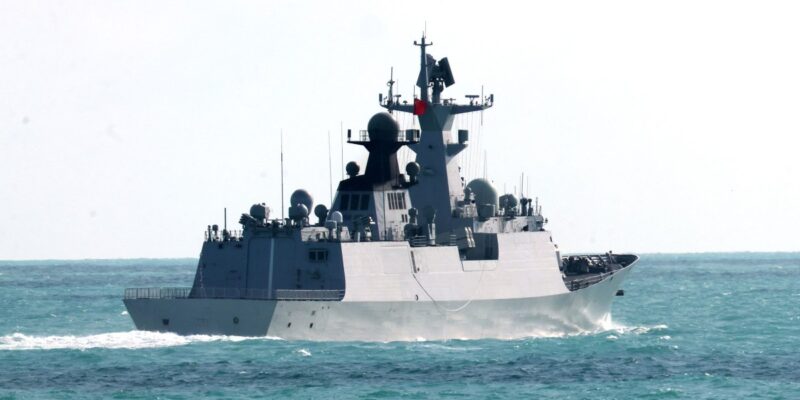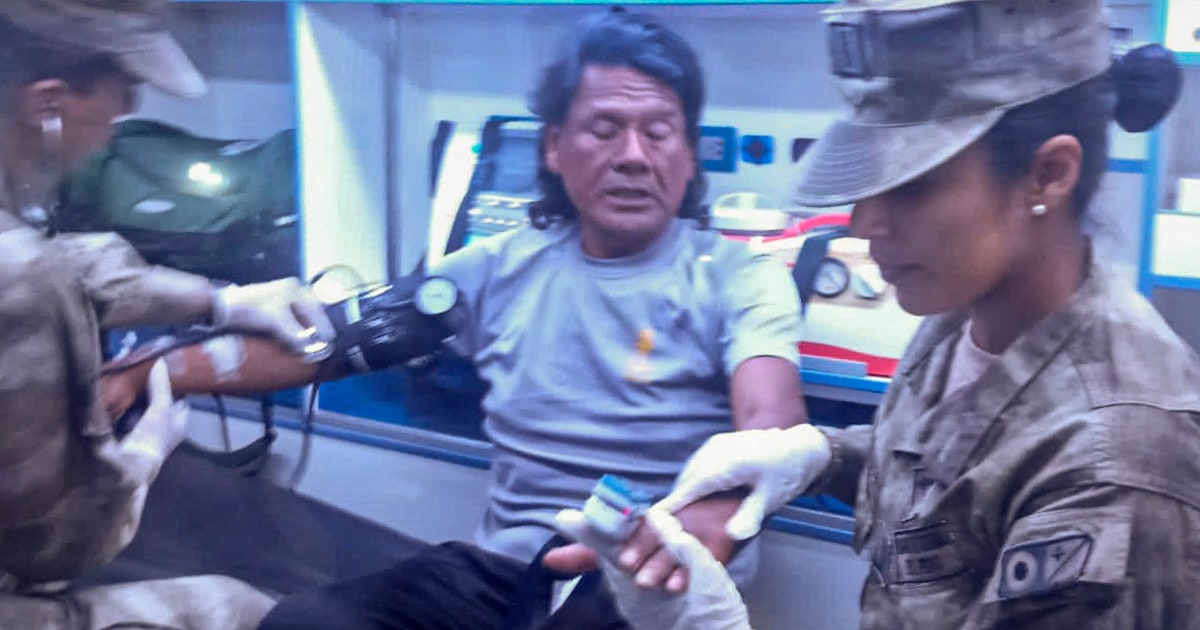
Australia expressed concern to China on Friday over the short notice given by the Chinese navy that it would hold a live-fire exercise in international waters between Australia and New Zealand, forcing airlines to divert flights, Defense Minister Richard Marles said.
Airlines including Qantas and Air New Zealand modified flight paths between Australia and New Zealand on Friday after China broadcast a message that its People’s Liberation Army Navy would hold live-fire exercises off the New South Wales coast in international waters, a rare event.
A People’s Liberation Army Navy frigate, cruiser and replenishment vessel last week entered Australia’s maritime approaches, and traveled down Australia’s east coast this week, monitored by the navies and air forces of Australia and New Zealand.
Australian Prime Minister Anthony Albanese told reporters on Friday afternoon that it was unclear whether live fire had been used by the Chinese navy, and the Australian defense force had advised there was no imminent risk of danger to Australian or New Zealand assets.
“China issued, in accordance with practice, an alert that it would be conducting these activities, including the potential use of live fire. It’s outside of Australia’s exclusive economic zone,” he said, indicating it was at least 200 nautical miles offshore.
The Chinese ships put out “a broadcast that was picked up by airlines or literally planes that were commercial planes that were flying across the Tasman,” Marles said in an ABC radio interview on Friday.
“They complied with international law in terms of providing notice, but it was very short notice and it did put commercial planes in a disconcerting circumstance where, you know, they were needing to divert pretty quickly,” he said.
Australia has asked China why it wanted to hold a live-fire exercise between Australia and New Zealand, and why more notice wasn’t given to avoid disruptions to commercial aircraft, he said.
Australian Foreign Minister Penny Wong will also raise the matter with her Chinese counterpart in South Africa, where they are attending the G20 foreign ministers‘ meeting.
China’s foreign ministry spokesman Guo Jiakun told a news briefing in Beijing on Friday that the Southern Theater Command of the People’s Liberation Army “organized a fleet of ships to conduct exercises and training in distant waters.”
“The exercises and training activities upheld safety standards and professional operations throughout in accordance with relevant international laws and international practices,” he said.
The New Zealand frigate Te Kaha was in the vicinity of the Chinese exercise, and New Zealand said it was gathering information about the Chinese navy activity.
“Like Australia, our primary concern is the safety of our people, vessels and aircraft. There is no ongoing danger to New Zealand,” New Zealand’s minister for defense, Judith Collins, said in a statement.
Airlines were contacted by Australia’s air traffic control agency on Friday warning them of reports of live fire where the Chinese navy task group was operating, the agency and Australian officials said.
“The Civil Aviation Authority and Airservices Australia are aware of reports of live firing in international waters,” air traffic control agency Airservices Australia said in a statement.
“As a precaution, we have advised airlines with flights planned in the area,” it added.
Qantas and its low-cost arm Jetstar were monitoring the airspace and temporarily adjusted some flights across the Tasman Sea between Australia and New Zealand.
Air New Zealand said it had modified flight paths as needed to avoid the area, with no impact to its operations, while Virgin Australia Virgin Australia was following instructions from Airservices Australia.
Albanese said he had contacted New Zealand Prime Minister Christopher Luxon about the matter.
“The chief of the defense force has advised that it’s not clear whether there was any actual live fire used in this area, but it is consistent with international law,” Albanese said.















